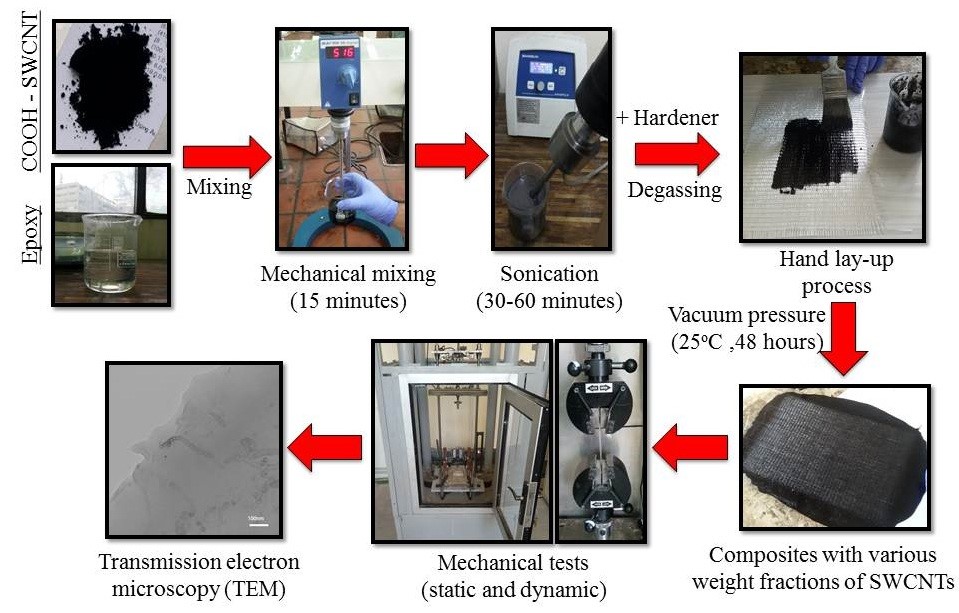Tue, Jul 22, 2025
[Archive]
Volume 18, Issue 2 (June 2021)
IJMSE 2021, 18(2): 1-12 |
Back to browse issues page
Download citation:
BibTeX | RIS | EndNote | Medlars | ProCite | Reference Manager | RefWorks
Send citation to:



BibTeX | RIS | EndNote | Medlars | ProCite | Reference Manager | RefWorks
Send citation to:
Maghsoudlou M A, Barbaz Isfahani R, Saber-Samandari S, Sadighi M. The Response of GFRP Nanocomposites Reinforced with Functionalized SWCNT Under Low Velocity Impact: Experimental and LS-DYNA Simulation Investigations. IJMSE 2021; 18 (2) :1-12
URL: http://ijmse.iust.ac.ir/article-1-1985-en.html
URL: http://ijmse.iust.ac.ir/article-1-1985-en.html
Abstract: (20137 Views)
The low velocity impact (LVI) response of pure and glass fiber reinforced polymer composites (GFRP) with 0.1, 0.3 and 0.5 wt% of functionalized single-walled carbon nanotubes (SWCNTs) was experimentally investigated. LS-DYNA simulation was used to model the impact test of pure and incorporated GFRP with 0.3 wt% of SWCNT in order to compare experimental and numerical results of LVI tests. All tests were performed in two different levels of energy. In 30J energy, the specimen containing 0.5 wt% SWCNT was completely destructed. The results showed that the incorporated GFRP with 0.3 wt% SWCNT has the highest energy absorption and the back-face damage area of this sample was smaller than other specimens. TEM images from specimens were also analyzed and showed the incorporation of well-dispersed 0.1 and 0.3 wt% of SWCNT, while in specimens containing 0.5 wt% of CNT, tubes tended to be agglomerated which caused a drop in LVI response of the specimen. The contact time of impactor in numerical and experimental results was approximately equal; however, the maximum contact forces in LS DYNA simulation results were higher than the experimental results which could be due to the fact that in the numerical modeling, properties are considered ideal, unlike in experimental conditions.
Keywords: Energy absorption, Functionalized single-walled carbon nanotube, Low velocity impact, LS-DYNA simulation, Polymer composites
Type of Study: Research Paper |
Send email to the article author
| Rights and permissions | |
 |
This work is licensed under a Creative Commons Attribution-NonCommercial 4.0 International License. |








